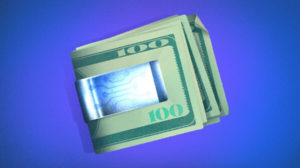Probiotics, and all the digestion benefits they provide, can bring a type of return we don’t all expect: money.
Subscribe to the Crunchbase Daily
Fermented Sciences, which produces an alcoholic Kombucha drink – laden with probiotics – just raised $25 million in venture capital. The Series B round was co-led by the Ecosystem Integrity Fund (EIF) and Beyond Meat investor PowerPlant Ventures, which we have written about before. Additional participating investors include Blueberry Ventures and Monogram Capital Partners.
The startup was founded by Bill Moses in 2017 in Ojai, Calif. It’s not Moses’ first cup of tea: Moses also founded another probiotic sparkling drink, KeVita, which was acquired by PepsiCo in 2016. Per his LinkedIn, he is also an executive chairman at a grass-fed protein drink company, ICONIC Protein, and a member of the board of directors of Wilde Brands, which makes protein chips from chickens and tapioca flour.
Since launching, Fermented Science has over 70 distributors across 30 states selling its hard kombucha, which it calls Flying Embers. The sales pitch? It’s a “better for you” alcohol alternative.
According to the company, Flying Embers is USDA certified organic with zero grams of sugar and zero carbs. It is additionally gluten-free, and vegan, and its alcohol by volume (ABV) is between 4.5 percent to 7.5 percent.
Low-alcohol, alcohol isn’t just an oxymoron that Ojai, Calif. has told itself.
Innovation within the overall beverage industry has been a trend for years in an attempt to make the sodas we love better for us (in March, Coca-Cola is launching a seltzer brand called “Aha”). Those efforts have extended to alcoholic beverages, too. As TechCrunch’s Kate Clark pointed out a bit back, “the wellness movement is taking over, driving VCs toward some odd upstarts.” Let’s get into those below.
IPAS? The Industry Goes Softer
Described by the New York Times as “like La Croix, but with a buzz,” White Claw is a low calorie alcoholic seltzer, launched in 2016. In fact, the millennial meme turned millennial sweetheart became so popular, even making its way into the Kentucky Derby, that there was a nationwide shortage. As a result, its parent company, which is also responsible for Mike’s Hard Lemonade, invested $250 million to make it the next billion dollar business. While White Claw isn’t traditionally backed by a slew of venture capitalists, it sets an example of sorts to the kind of fame, growth, and market opportunity there is in softer alcohols.
Oregon-based Kyla is also working on an alcoholic kombucha brand, and it got an investment of undisclosed size, from Encore Consumer Capital in May, according to a release.
Stepping away from hard fizzy seltzers, we have Haus, a startup that sells a direct-to-consumer “aperitif” made from California grapes and elderflower. On its website, it claims it has less alcohol than liquor and is lighter than beer, and is “way less sugary than those European liqueurs.” The upstart, which has pre-seed backing from investors like Haystack, Combine, and Partners Resolute, was started by husband and wife team Helena Price Hambrecht and Woody Hambrecht, according to TC. Haus is currently fundraising.
Above we learned of low-alcohol options. There are also no-alcohol options, like London’s Seedlip, which claims it has created the world’s first distilled non-alcoholic drink. Diageo, one of the world’s largest alcohol producers which is behind Guinness, Pyotr Smirnoff, John Walker, Charles Tanqueray and more, acquired a major stake in it in August.
Fizzy Future
Behind all these seltzers are venture capitalists specifically looking to spill some money into alternatives for high ABV beverages. Constellation Ventures invests in new liquor, beer, and wine technologies. ZX Ventures, a global incubator and VC firm through Anheuser-Busch InBev, invests in non-beer companies.
Venture firms focusing on this through specific funds tells me that this trend of “good for you alcohol” isn’t just a bubbling up moment, or an upstart’s solo plight. To some venture capitalists, this vertical has the possibility for 10-year returns. Let’s see whether the future is fizzy, or flat.
Photo by Jonathan Borba on Unsplash

Stay up to date with recent funding rounds, acquisitions, and more with the Crunchbase Daily.




![Illustration of a man sitting on a huge pile o' money. [Dom Guzman]](https://news.crunchbase.com/wp-content/uploads/Giant_Funding-300x168.jpg)
![Illustration of remote meet on cellphone, unicorn chess piece and money. [Dom Guzman]](https://news.crunchbase.com/wp-content/uploads/business-strategy-300x168.jpg)



67.1K Followers